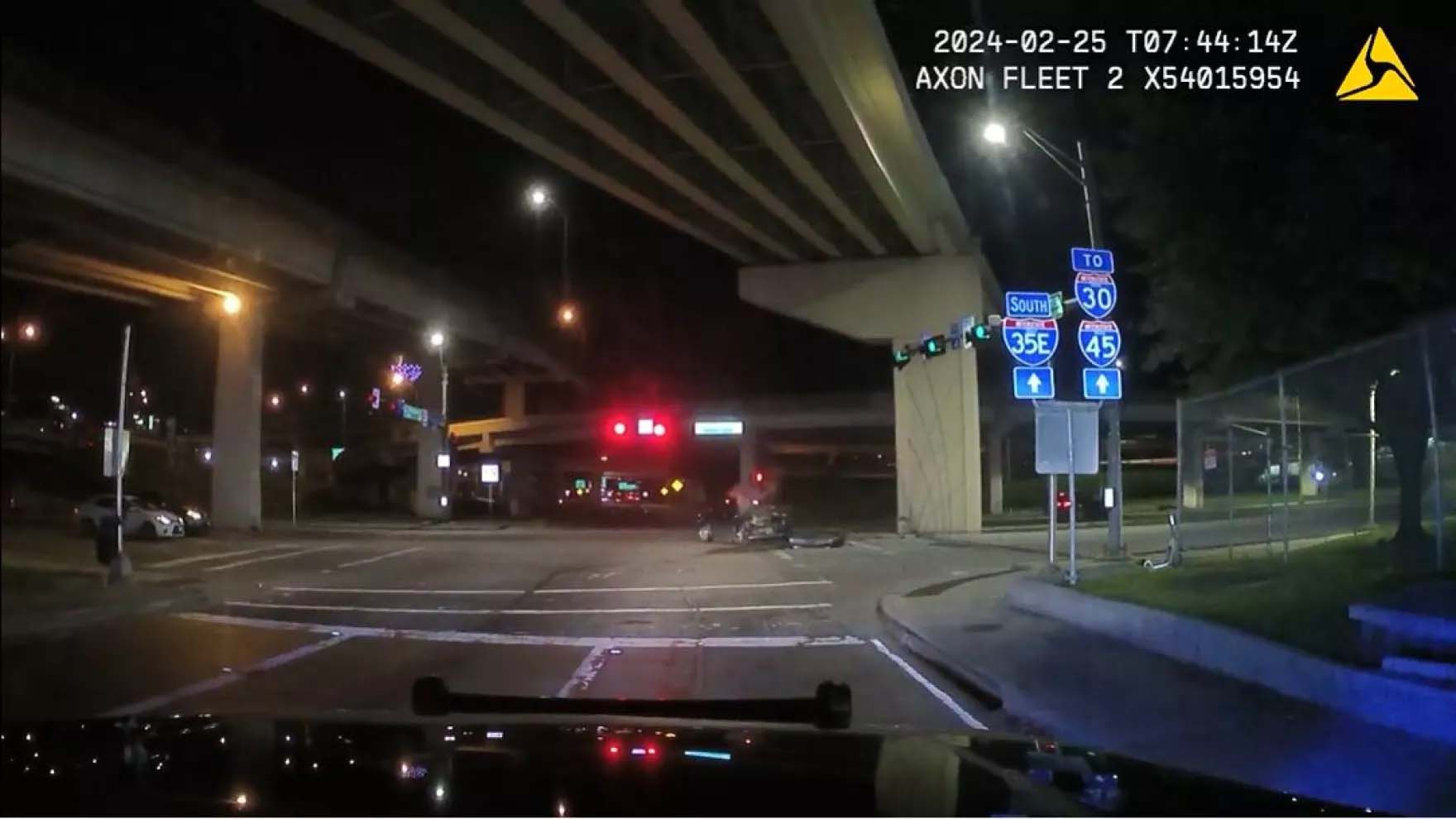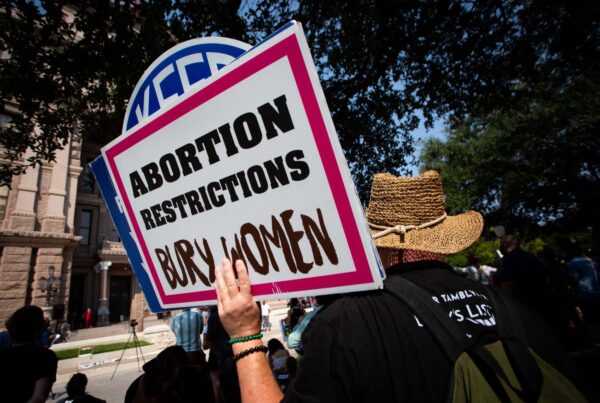A high-speed police chase weaving through traffic on the highway may make for great TV – but in reality, police pursuits pose a very serious and real danger to the public, with innocent bystanders sometimes injured or killed by officers chasing suspects.
 In this edition of The Drill Down, our focus on investigative journalism in collaboration with the Texas Newsroom, we talked with KERA News reporter Toluwani Osibamowo and the Fort Worth Report’s Emily Wolf about their series Deadly Pursuits, looking into North Texas law enforcement offices’ car chase policies.
In this edition of The Drill Down, our focus on investigative journalism in collaboration with the Texas Newsroom, we talked with KERA News reporter Toluwani Osibamowo and the Fort Worth Report’s Emily Wolf about their series Deadly Pursuits, looking into North Texas law enforcement offices’ car chase policies.
This transcript has been edited lightly for clarity:
Texas Standard: What prompted you to look into the issue of police car chases? Was there a specific incident that raised red flags?
Toluwani Osibamowo: Yeah, well, I know that we were both seeing this chase that had happened in Fort Worth last summer involving an uninvolved bystander – his name was Andre Craig – who was hit by a Fort Worth police vehicle and killed while the officer was chasing a suspect.
And so we finally came together this year to kind of dive into the world of police chases, the policies, and the effect they have on the community.
Emily, I know that you had been publishing a series of stories on this for the Fort Worth report, trying to get some answers as to why the police department wasn’t being more forthcoming with its policy. What were you finding out?
Emily Wolf: Honestly, not a whole lot, at least initially. The Fort Worth Police Department was pretty adamant that releasing their policy to the public would endanger their officers by making public what pursuit tactics they use to catch criminals.
We initially put in a records request last summer. They appealed to the attorney general’s office, and the AG actually ruled in our favor. However, a few months later, the Fort Worth Police Department and the City of Fort Worth sued the attorney general to keep that policy secret.
That lawsuit is still ongoing. We’re still hoping to get that policy fully released.
Of course, one of the aspects of this story is what other police departments outside of Fort Worth are doing. How have you gone about getting some of these policies from different departments, and which ones have you obtained?
Emily Wolf: Getting the policies has varied from department to department. Some of them were already available online. Other departments didn’t have it online, but they still had it available through an open records request.
With that being said, some of the departments we talked to that did release their policies to us included the Kennedale Police Department, the White Settlement Police Department, North Richland Hills Police Department, and the Dallas Police Department.
As you reviewed these statements, were you seeing patterns? Was there consistency across the board between departments? What were you finding?
Toluwani Osibamowo: Well, national organizations that advise police on policies like this often give guidance. And you could see some through lines. I found one thing that was common was the priority of public safety – asking officers to consider whether the risk of engaging in a high-speed chase on a public roadway was worth pursuing a suspect for whatever suspected crime.
But they did vary in terms of what officers were actually allowed to pursue for. So some, at least with the Dallas Police Department, I know specifically, one of their main things is that they kind of try to limit their chases to pursuing suspects for violent felonies. Other departments like White Settlement might do so for DWIs.
Others provide more general context about considering the seriousness of the offense, considering what road conditions are, traffic, weather, things like that.
» GET MORE NEWS FROM AROUND THE STATE: Sign up for Texas Standard’s weekly newsletters
I have to ask about whether or not there is a concern among police officers that you spoke with that if we are transparent about these policies, that there is the possibility that people may commit a crime and know they can get away with it because we will cut off the pursuit and perhaps they will be less likely to be caught committing a crime.
Is that any factor in the shaping of these policies or the willingness on the part of some of these departments to release their policies?
Emily Wolf: That’s an interesting question. And it’s one that was really at the heart of our reporting on this subject. Honestly, it varied from department to department on whether they felt releasing that policy was going to hinder their officers.
For example, Kennedale Police Chief Mike Holguin said it had never come up in his decades-long career as a police officer and now as a police chief. With that being said, it is a very real concern for the Fort Worth Police Department. It’s part of the reason they don’t want to release it in its entirety, though they did release a partially redacted version of the policy after our reporting.
One of the things that’s been brought up across police departments is the danger of some of the tactics used in chases. A lot of people have heard about spike strips or stop sticks. Those are metal spikes laid out on the road to pop tires during a pursuit.
Which can be very dangerous in and of itself.
Emily Wolf: Yes, it’s definitely incredibly dangerous, not just for the drivers, but for the officers. An officer has to get out of their car to lay down those spike strips.
And in Fort Worth, we’ve had officers run over while they’re putting out spike strips. So just the tactics themselves and how officers are supposed to handle that sort of thing can be dangerous.
Where does your reporting go from here? What stories are you working on?
Toluwani Osibamowo: We’re currently working on talking to the people that this affects: Families who have lost their loved ones in police chases, be that as innocent bystanders [or] as people in the vehicle being chased.
And we are also looking forward to kind of figure out, okay, what are some of the consequences that officers face in these situations, as well as cities themselves? Who is held responsible when these families or these individuals feel that police are responsible for any harm that they may have caused during high-speed police chases?
So those are some of the things that we are looking at doing some more reporting on in the coming weeks.












